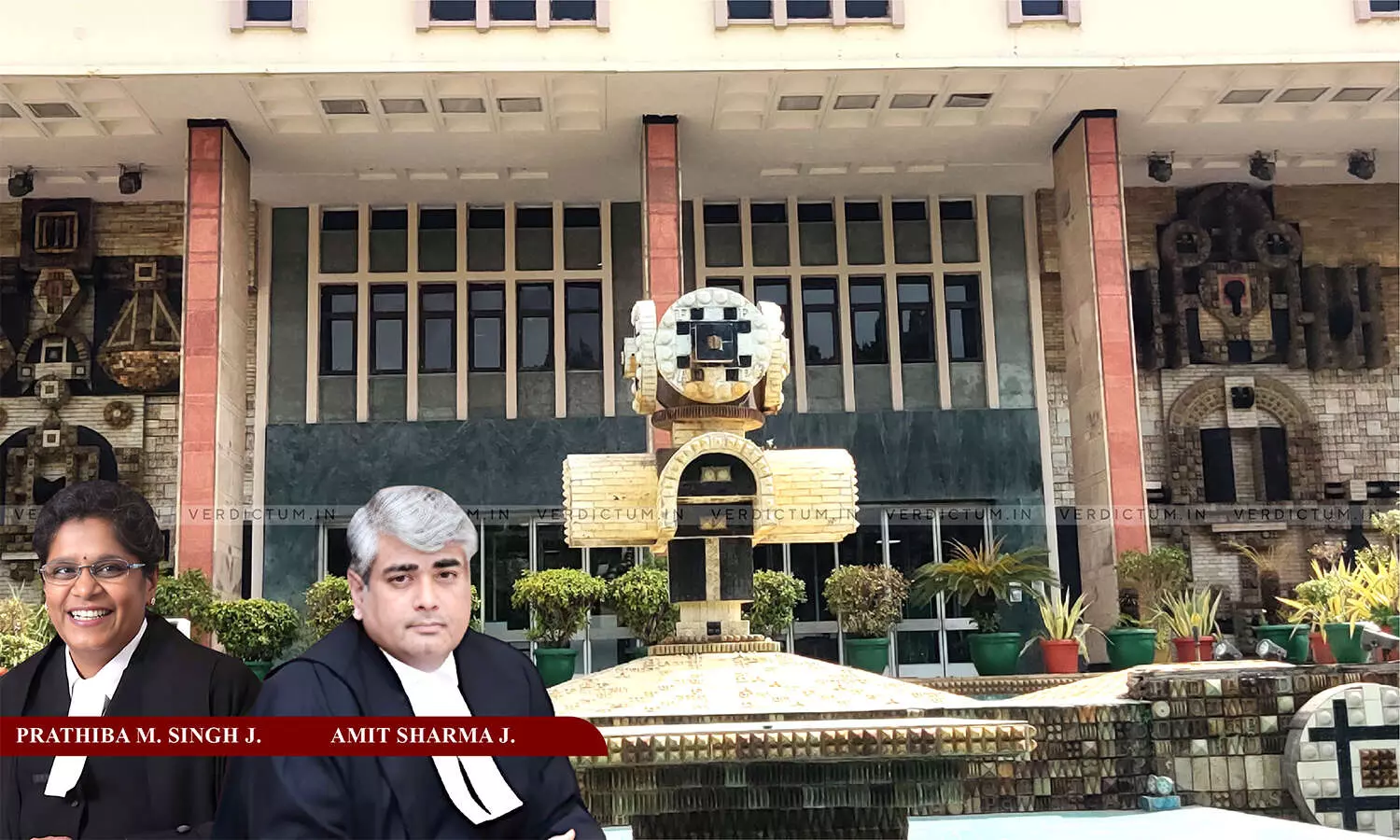
Courts Need To Consider Crime’s Impact & Propensity Of Person To Indulge In It While Awarding Sentences For Terrorism Related Activities: Delhi HC
 |
|The Delhi High Court emphasised that, while awarding sentences for terrorism-related activities, the Courts not only have to bear in mind the crime committed but also the impact of the same and the propensity of the person to indulge in a similar crime in future.
The Court emphasised thus in Appeals filed by two accused persons seeking reduction of their respective sentences imposed by the Trial Court.
A Division Bench of Justice Prathiba M. Singh and Justice Amit Sharma observed, “… though specific guidelines have not been introduced on a policy level in India, the factors to be seen in awarding sentences are similar to those of other jurisdictions. While awarding sentences for terrorism-related activities, the Courts will have to, not merely bear in mind the crime committed but also the impact of the same and the propensity of the person to indulge in a similar crime in future. The intent behind providing a range of punishment that could be awarded for an offence is to give the Courts sufficient discretion to consider various aggravating and mitigating factors while awarding sentences. Though there is no doubt that the discretion has to be exercised judiciously, it cannot be expected to be uniform.”
The Bench added that in a country like India, where there are possibilities of innocent persons being encouraged towards terrorism, it is not merely the rights of the convict that have to be considered but also the impact of the said convict being allowed to integrate back into society which has to be considered.
Advocate R.K. Thakur represented the Appellant while SPP Rahul Tyagi represented the Respondent.
Facts of the Case -
An FIR was registered by the Special Cell against the accused persons upon which they were arrested in March 2020. The allegation was that they were affiliated with the proscribed terrorist organisation Islamic State Khorasan Province (ISKP). The said ISKP is stated to be a part of the ISIS (Islamic State of Iraq and Syria). The FIR alleged that they were carrying out anti-national activities in India. Based on the disclosures made upon arrest, certain materials such as an incriminating anti-nationalist magazine named ‘Voice of Hind’ etc., were seized from the house and car of the accused in support of the said allegations.
In the meantime, the Ministry of Home Affairs (MHA) issued an Order, entrusting the investigation to the National Investigation Agency (NIA). Accordingly, the chargesheet was filed under Sections 120B, 124A, 153A, and 201 of the Indian Penal Code (IPC) and Sections 13, 18, 38, and 39 of the Unlawful Activities Prevention Act, 1967 (UAPA). Subsequently, upon taking cognizance, the Trial Court passed an Order of sentence. Hence, the Appeals were filed.
The High Court in view of the above facts, noted, “Considering the specific facts of the present cases, the proliferation of crime through the internet and social media platforms cannot be ignored. The fact that the Appellants used fake identities to conceal their original identity and avoid tracing also cannot be ignored. While encrypted platforms permit and encourage privacy and freedom of speech and expression, the misuse of the same by terrorists and banned organizations also would have to be borne in mind.”
The Court remarked that the Appellants are technologically savvy persons who have made use of their educational qualifications to promote terrorism and incite offensive activities against the country.
“Such cases would have to be dealt with differently than cases involving innocent persons, who may have been pulled into crime without their knowledge. Factors such as funding through bitcoins, as also the use of journalistic credentials to publish and disseminate magazines to incite violence, also cannot be ignored”, it said.
The Court, therefore, modified the sentence of one accused from imprisonment for a period of 8 years each to imprisonment for a period of 6 years each and the other accused from imprisonment for a period of 7 years each to imprisonment for a period of 6 years each.
Accordingly, the High Court disposed of the Appeals and modified the sentence.
Cause Title- Hina Bashir Beigh v. National Investigation Agency (Neutral Citation: 2024:DHC:8801-DB)
Appearance:
Appellant: Advocates R.K. Thakur, Kanishka Dhoundiyal, and Anoop Khanna.
Respondent: SPP Rahul Tyagi, APPs Sangeet Sibou, Jatin, Vikas Walia, Advocates Priya Rai, and Abhishek Tomar.